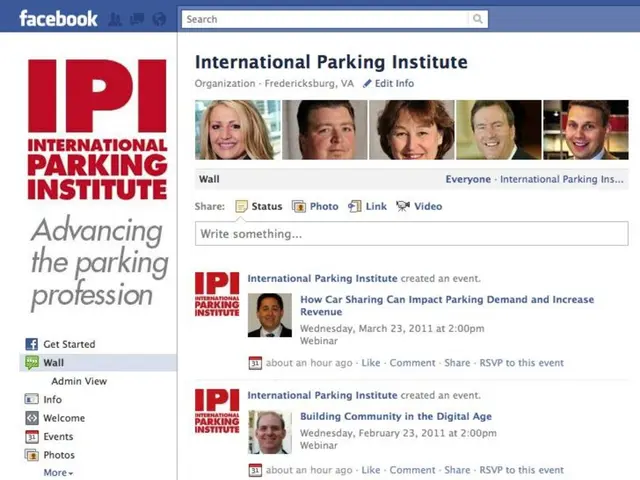Managing ADHD to Prevent Exhaustion Affecting My Personal Connections
The Impact of ADHD Burnout on Relationships
Individuals with ADHD often experience burnout due to the constant effort required to manage their symptoms and meet societal expectations. This exhaustion can significantly strain relationships, leading to increased irritability, emotional dysregulation, social isolation, difficulty fulfilling responsibilities, and communication challenges.
Strain on Interactions
ADHD burnout can lead to heightened irritability and mood swings, which can make interactions with your partner challenging. Emotional dysregulation, a common challenge for those with ADHD, can be intensified during burnout, leading to unpredictable emotional responses that others may find difficult to navigate.
Individuals experiencing ADHD burnout may withdraw from social situations, even when they desire connection. This isolation can be misunderstood by partners, who might feel rejected or confused by the sudden change in behavior.
Difficulty in Meeting Commitments
Burnout can impair an individual's ability to manage daily tasks and commitments, leading to missed deadlines, neglected chores, and a general sense of unreliability. This can create resentment and frustration in relationships, particularly when a partner depends on the individual with ADHD to contribute.
Communication Barriers
When in burnout, people may offer minimal responses in conversations due to exhaustion and overwhelm. The constant mental chatter associated with ADHD can make it difficult to focus on and engage in meaningful conversations, leading to misunderstandings and feelings of disconnection with a partner.
Overcoming ADHD Burnout for Stronger Relationships
Understanding the link between ADHD and burnout, implementing tailored coping strategies, and fostering open communication can help individuals and couples navigate these challenges and build stronger, more supportive relationships.
Several tips for preventing and overcoming ADHD burnout include understanding the impact of ADHD on relationships, implementing tailored rest strategies, setting realistic expectations and boundaries, prioritizing self-care and healthy routines, practicing open communication, and seeking support when needed.
Seeking Support and Understanding
To support a partner experiencing ADHD burnout, it is crucial to provide understanding, practical assistance, and encourage self-care. This can include educating oneself about ADHD, practicing active listening, offering practical support, planning regular "recharge retreats," considering couples therapy, and taking care of oneself.
In summary, ADHD burnout can put a significant strain on relationships, leading to a variety of challenges in communication, emotional regulation, and fulfilling responsibilities. However, by understanding the link between ADHD and burnout, implementing effective coping strategies, and fostering open communication, individuals and couples can overcome burnout and build stronger, more supportive relationships.
- The constant effort required to manage ADHD symptoms and meet societal expectations can lead to burnout, causing heightened irritability and mood swings that make interactions with a partner challenging.
- Emotional dysregulation, a common challenge for those with ADHD, can be intensified during burnout, leading to unpredictable emotional responses that may be difficult for others to navigate.
- Individuals experiencing ADHD burnout may withdraw from social situations, even when they desire connection, which can be misunderstood by partners who might feel rejected or confused.
- Burnout can impair an individual's ability to manage daily tasks and commitments, leading to missed deadlines, neglected chores, and a general sense of unreliability, creating resentment and frustration in relationships.
- Minimal responses in conversations due to exhaustion and overwhelm can lead to misunderstandings and feelings of disconnection with a partner during burnout.
- Understanding the link between ADHD and burnout, implementing tailored coping strategies, and fostering open communication can help individuals and couples navigate burnout and build stronger, more supportive relationships.
- Tips for preventing and overcoming ADHD burnout include understanding the impact of ADHD on relationships, implementing tailored rest strategies, setting realistic expectations and boundaries, prioritizing self-care and healthy routines, practicing open communication, and seeking support when needed.
- To support a partner experiencing ADHD burnout, it is crucial to provide understanding, practical assistance, and encourage self-care, such as educating oneself about ADHD, practicing active listening, offering practical support, planning regular "recharge retreats," considering couples therapy, and taking care of oneself.
- Open communication, self-care, and understanding are essential for both individuals with ADHD and their partners to overcome burnout and foster healthier, more supportive relationships.
- ADHD also plays a role in various neurological disorders, mental health conditions, and chronic diseases, making it even more important for individuals to seek appropriate therapies and treatments, including therapy and medication, as needed.
- Making lifestyle changes, such as focusing on nutrition, fitness and exercise, sleep, and stress management, can help individuals with ADHD better manage their symptoms and promote general health and wellness.
- CBD has been shown to have potential benefits for treating symptoms of ADHD and reducing stress, which can help individuals manage burnout and improve their overall wellbeing, including their relationships.








